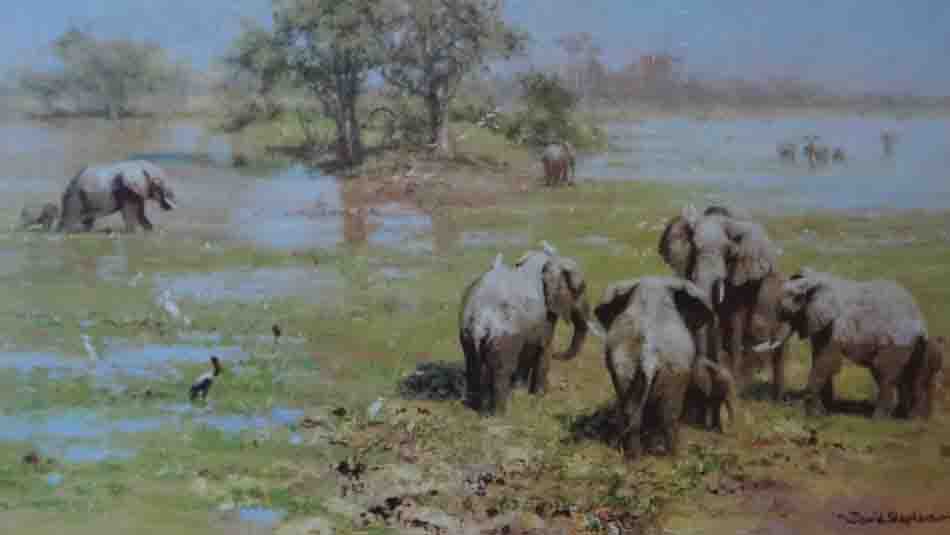Mothers Meeting
David Shepherd

Mother's Meeting
Signed Limited Edition print of 850
Published 1986
Image Size:- 9" x 16"
In stock:- price; please call
Because of their large size, elephants have a huge impact on their environments and are considered keystone species.
Their habit of uprooting trees and undergrowth can transform savannah into grasslands; when they dig for water during drought, they create waterholes that can be used by other animals.
They can enlarge waterholes when they bathe and wallow in them.
At Mount Elgon, elephants excavate caves that are used by ungulates, hyraxes, bats, birds and insects.
Elephants are important seed dispersers; African forest elephants ingest and defecate seeds, with either no effect or a positive effect on germination.
The seeds are typically dispersed in large amounts over great distances.
In Asian forests, large seeds require giant herbivores like elephants and rhinoceros for transport and dispersal.
This ecological niche cannot be filled by the next largest herbivore, the tapir.
Because most of the food elephants eat goes undigested, their dung can provide food for other animals, such as dung beetles and monkeys.
Elephants can have a negative impact on ecosystems.
At Murchison Falls National Park in Uganda, the overabundance of elephants has threatened several species of small birds that depend on woodlands.
Their weight can compact the soil, which causes the rain to run off, leading to erosion.